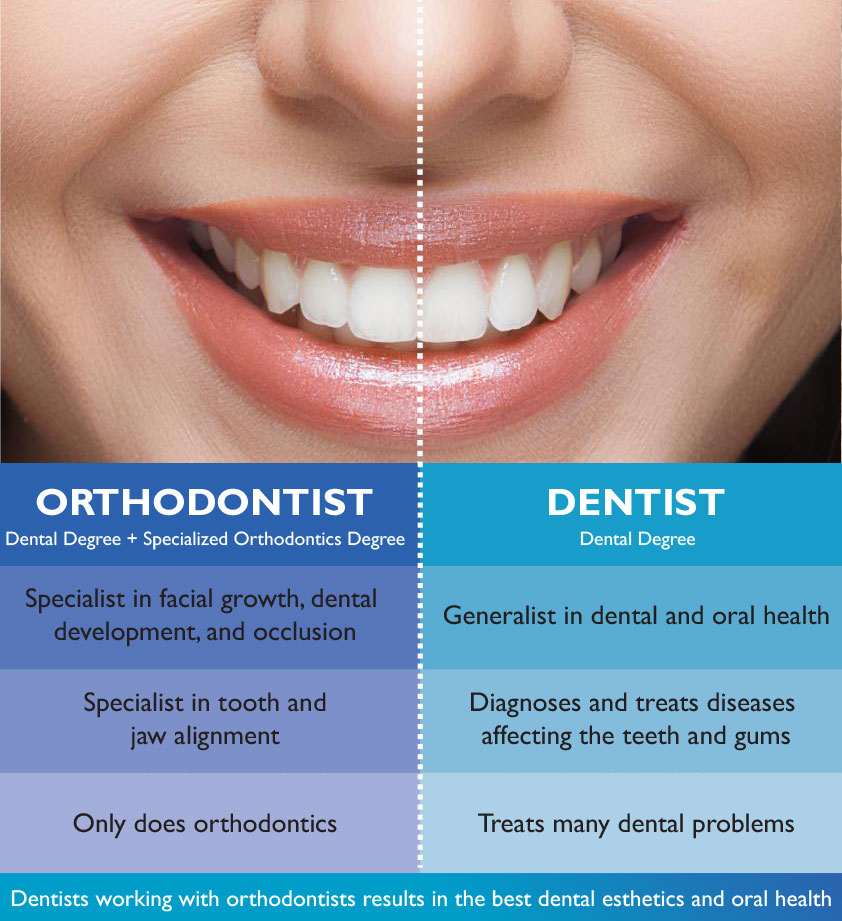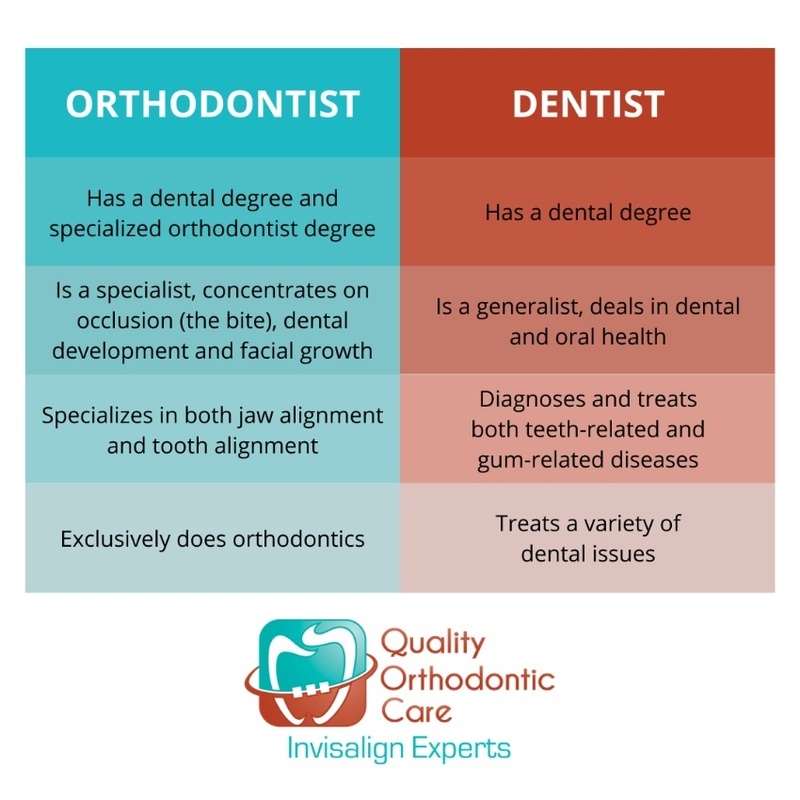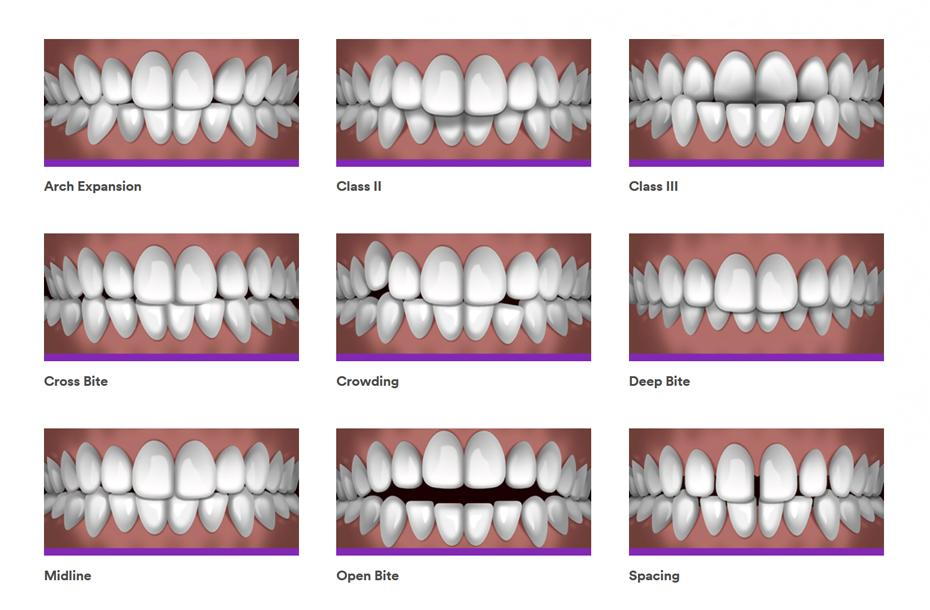Some Known Details About Causey Orthodontics
Some Known Details About Causey Orthodontics
Blog Article
Some Of Causey Orthodontics
Table of ContentsCausey Orthodontics - TruthsCausey Orthodontics - The FactsSome Ideas on Causey Orthodontics You Should KnowThe Facts About Causey Orthodontics UncoveredLittle Known Facts About Causey Orthodontics.Causey Orthodontics Fundamentals ExplainedGetting The Causey Orthodontics To Work
What is the distinction between a dentist and an orthodontist? To answer a question that is usually asked, both dental professionals and orthodontists aid clients get far better dental health and wellness, albeit in different methods. It assists to keep in mind that dental care is an instead broad scientific research with different clinical specializations. All dental experts, consisting of orthodontists, treat the teeth, gums, jaw and nerves.
You can assume of both medical professionals that deal with gum and teeth problems. The main difference is that becoming an orthodontist calls for a specific specialty in dealing with the imbalance of the teeth and jaw.
Some Known Questions About Causey Orthodontics.
An orthodontist is a dentist that has actually undergone training to specialize in the medical diagnosis, avoidance and treatment of irregularities in the jaw and teeth. They can also recognize potential problems in teeth placement that may develop when conditions are left without treatment (family orthodontics).
This includes all the essential education to end up being a general dental expert. According to the American Student Dental Organization (ASDA), it means you will certainly need to have either a Medical professional of Medicine in Dental Care (DMD) or a Medical Professional of Dental Surgery (DDS). To put it simply, orthodontists require to complete dental school and after that acquire an orthodontics specialized education.
Some orthodontists also obtain their masters in craniofacial biology. orthodontist near me (http://simp.ly/p/S87ggs). Numerous oral schools supply restricted orthopedic training and guideline, which is why general dental practitioners need to head to orthodontic school after graduation. Orthodontic residency programs supply intensive training for this kind of dental expertise. These programs concentrate on 2 certain areas or disciplines: Dentofacial Orthopedics: This research study focuses on guiding teeth and jaw development.
The 5-Minute Rule for Causey Orthodontics

 These include apparatus such as braces, retainers and Invisalign. So, what does an orthodontist do, and what do they focus on? The total goal of an orthodontist is to improve an individual's bite. Not everybody is birthed with straight teeth, and an orthodontist will certainly ensure that clients get uniformly spaced straight teeth.
These include apparatus such as braces, retainers and Invisalign. So, what does an orthodontist do, and what do they focus on? The total goal of an orthodontist is to improve an individual's bite. Not everybody is birthed with straight teeth, and an orthodontist will certainly ensure that clients get uniformly spaced straight teeth.
Some Ideas on Causey Orthodontics You Should Know
The American Organization of Orthodontists recommends your initial check up by age 7. You'll need to see your orthodontist if you have an imbalance in your teeth, also called malocclusion. If you discover irregular bite patterns, a somewhat misshapen jaw, or when your teeth are overcrowded, you will likely require orthodontic therapy.
In addition, we use flexible treatment routines, adaptable repayment choices and a fun, delightful experience.
An orthodontist is a dental practitioner trained to identify, protect against, and deal with teeth and jaw irregularities. They correct existing conditions and are educated to recognize problems that might establish in the future. Orthodontists collaborate with individuals of every ages, from kids to grownups. People commonly connect a best smile with great health.
About Causey Orthodontics
Malocclusion, or misaligned teeth, can lead to oral problems, consisting of dental caries, periodontal illness, and challenging or excruciating chewing. But not everybody is birthed with straight teeth. If you have a poor bite or big rooms in between your teeth, you may wish to seek advice from a dental professional concentrating on orthodontic care.
(Photo Credit Scores: DigitalVision/Getty Images) Orthodontists utilize dealt with and removable oral tools, like dental braces, retainers, and bands, to transform the position of teeth in your mouth. Orthodontic treatment is for dental abnormalities, including: Uneven teethBite issues, like an overbite or an underbiteCrowded teeth or teeth that are too far apartJaw misalignmentThe goal of orthodontic treatment is to enhance your bite.
Not known Factual Statements About Causey Orthodontics

, yet not all dentists are orthodontists. They concentrate on two locations: How to appropriately and safely move teeth How to correctly direct development in the teeth, jaw, and faceOnce an orthodontist has finished training, they have the alternative to come to be board licensed.
Malocclusion leads to tooth overcrowding, a misshapen jaw, or irregular bite patterns. Malocclusion is normally treated with: Your orthodontist attaches metal, ceramic, or plastic square bonds to your teeth.
Causey Orthodontics for Beginners
If you have just small malocclusion, you might be able to use clear braces, called aligners, instead of traditional dental braces. Some individuals need a headgear to aid relocate teeth right into line with pressure from outside the mouth. After dental braces or aligners, you'll need to wear a retainer. A retainer is a customized device that keeps your teeth in place.
Report this page